Abdulkarim Ahmed Bucheery, CEO of BBK Bahrain, Bahrain Banking
Interview with Abdulkarim Ahmed Bucheery, CEO of BBK Bahrain, Bahrain Banking – Biography
I think the room for expansion for Islamic banking is larger than that for conventional banking although there is room for conventional banks to grow too of course.
HE Sheikh Ahmed bin Mohammed Al Khalifa, Minister of Finance declared 2009 will be a challenging year for the financial sector and the global economy, but with a well-capitalised banking sector, the prospects for Project Finance in Bahrain remains good. However, in January, the Moody’s investor service (not sure about the naming – isn’t it Moody’s)downgraded the credit of Bahrain. How do you assess the situation in Bahrain’s banking sector and its ability to overcome the financial crisis?
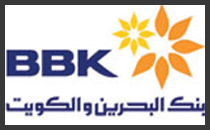 Indeed I think the year 2009 will be a very challenging year, it will be painful to a certain extent, but I think banks in Bahrain have generally prepared themselves and positioned themselves very well to take the challenges of the year 2009. Although banks in Bahrain have of course been affected by the international crisis, they have been able, thanks to good capitalization and capital liquidity,to weather the situation nicely in 2008.
Indeed I think the year 2009 will be a very challenging year, it will be painful to a certain extent, but I think banks in Bahrain have generally prepared themselves and positioned themselves very well to take the challenges of the year 2009. Although banks in Bahrain have of course been affected by the international crisis, they have been able, thanks to good capitalization and capital liquidity,to weather the situation nicely in 2008.
Many banks in Bahrain, including BBK, have posted impressive results in 2008, which has added to their capital base but I think in the year 2009 banks in Bahrain will be able to continue pumping liquidity into the market and will be able to take part in the development projects for the country. Bahrain, thanks to the stringent regulations and rules of the Central Bank of Bahrain, has safeguarded the banks in Bahrain against further negative implications by assuring good capital liquidity.
Capital adequacy in Bahrain is set at minimum 12% versus the international minimum rate of 8%. At BBK we have 20% capital adequacy, which gives us room to expand, to take more risks in our balance sheet and to enable us to absorb the shocks that may come out of the economic crisis. 2009 will be challenging but we have enough resources within the banking sector to continue with the same momentum of economic development and economic growth.
How about for the year 2010 and beyond?
If I could tell what will happen tomorrow, I might be able to tell what will happen in 2010! These are very difficult times, it is extremely difficult to imagine what will happen in a year but I think the expectation in the market is that the year 2009 will hopefully be the end of the consequences of the crisis that happened in 2007 and deepened towards the end of last year. I think that 2010 will start to show some positive indication of the crisis reaching its end. So, for the year 2010 and beyond, I am hopeful that we will start to see some indications for growth.
Gul Khan, Regional Head of HSBC Middle East, declared: “Dubai is the regional business hub for the Middle East and North Africa.” Do you feel more could be done to improve Bahrain’s international and regional position?
I may disagree with this statement. I think Bahrain continues to be the regional hub for the financial sector; I think it has been for a long time, is still and will continue to be. I am not talking about Dubai in particular, I think Dubai has many advantages that could help it become a regional financial hub, but Bahrain has the fundamentals; it has got infrastructure in place that will enable it to continue to be the regional hub for the financial sector. My reason for saying this is that we have human resources in Bahrain, if you go to any bank in Bahrain you will see the majority of people working there – from top to bottom – are nationals. We don’t have to import; we don’t have to look for a long time to find the right people. We have a good supply of good personnel to work in the banking sector, thanks to our training sector established many years ago, which has created a number of good bankers. Many of the people in Bahrain have been to various international courses in credit management, banking, etc. so today we have a good supply of human resources for the banking sector, which is an advantage that I don’t think is available in other neighbouring countries. In fact, we export people to neighbouring countries.
Secondly, we have a very well respected regulator; Bahrain has been known for its prudence and efficiency in handling the banking sector. At times, they might be seen as over-regulating but I think sometimes over-regulation is needed to ensure the stability and continuity of the banking sector. We have a central bank that is well-known for its prudence, proficiency and effectiveness in handling the banking sector in Bahrain.
Thirdly, Bahrain has a well developed telecommunications industry. We are just a stone’s throw away from the kingdom of Saudi Arabia, which is the largest economy in the Gulf, if not in the whole Arab world. This economy provides the banks working in the country with good business opportunities so I think we will continue to be closer to this economy than any other country.
Also, there is the depth of the market to consider. Banking in Bahrain started a long time ago; earlier than any other Gulf country.
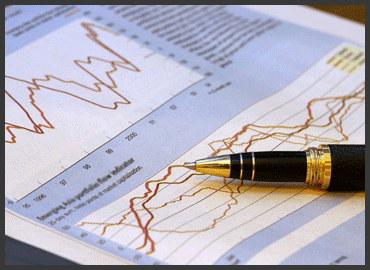 It started growing in the early ’70s, after what happened in Beirut with the Civil War; Beirut used to be the financial hub in the Middle East but when the Civil War started most of the banks started moving to Bahrain. Since then, Bahrain has become the financial hub.
It started growing in the early ’70s, after what happened in Beirut with the Civil War; Beirut used to be the financial hub in the Middle East but when the Civil War started most of the banks started moving to Bahrain. Since then, Bahrain has become the financial hub.
So, I think Bahrain will continue to be a financial business centre. Of course, you need to increase the size of banks; consolidation, mergers, etc. For most Bahraini banks, I think it would be a good idea to be able to withstand the bigger challenges that will come in the future.
Bahrain has one of the highest banking densities in the GCC. As one of the leaders in the market, how do you structure a competitive strategy?
It is true that Bahrain has the highest density of banks out of the GCC countries, but there are different types of banks: there are commercial banks that are licensed to provide services to the locals and to the local market and there are only about 20 of them. We also have what used to be known as off-shore banking units that are now known as wholesale banking units – the likes of Arab Banking Corporation and Gulf International Banks. In addition, we have investment banks, financial companies, investment companies and Islamic banks. We have a mix of specialization within the banking industry and within each sector there are a number of banks. In the sector that we are in, which is commercial banks, there is a lot of competition, of course.
However, this competition only leads to the betterment of the client; the more offers he gets from different banks, the easier it is for him to choose the offer that best meets his needs. Yet, you can still make good money in this market because, of course, money has value and it all depends on how well you provide your services to the clients. Some clients may forego 0.5% or 1% additional costs if they receive better service from a particular bank, and that’s what we are building on: improving the quality of customer services. At BBK, we have been a pioneer in launching our financial malls, you may have seen them around the country, we now have four of them.
No other bank in Bahrain or any other Gulf country has developed this financial mall concept. A financial mall is not just a bigger branch, it’s a branch that has many other services under its umbrella. The plan is to have more customer-related services under one umbrella, operating out of our financial mall; there could be a travel agent, a telecommunications representative, a representative of our subsidiaries such as our credit card company, call centre or Islamic bank. So, many services are available under one umbrella in a very modern, state-of-the-art location where people find it much easier and more convenient to do business.
The benefit of financial malls to BBK is we may be able to attract customers looking at other services to BBK. For instance, if you walk into our financial mall to pay your telephone bill, you might decide to take a look at our bank.
This way we may be able to attract customers. We hope to increase the number of financial malls to eight by the end of this year or mid-2010. BBK has got a franchise and a name in the market so the name of the game is also to try to provide more than one banking service to the customers. For example, we have our fully-owned credit card company, which is known as CrediMax.
We are the largest card issuer and credit card acquirer in the country. A customer might be attracted to BBK against stiff competition because he will receive a credit card service as well as a banking service. It’s not easy, it is very challenging, but we are doing our best to be able to weather this competition.
During the 9th GCC banking conference Mr. Abdulkareem Abu Al Nasr the CEO of National Commercial Bank of SA declared ‘ profitability will come under stress, but banking system is resilient” addressing Developments in GCC Banking. Do you agree or disagree with this statement and is profitability a cause of concern to you?
I agree completely with the statement, not only because he said the right statement but because he shares my first name! I think profitability will definitely come under major stress for many reasons. Firstly, opportunities to create a new sizeable business, an infrastructure project for instance, will not be so easy to come by in the coming year or two and that is due to the lower oil prices. Oil prices last year were about $140 per barrel, then they came down to below $40 and now they’re going up to about $50. However, going from $140 to $50 represents more than a 60 or 70% drop in the oil price, which was additional revenue that the country could use to develop its infrastructural projects faster. What will happen in the coming years? The pace of infrastructural projects will definitely slow down and these are the projects that we like to get involved in as banks. So, the availability of major projects will be very scarce as we go along.
 Corporate failure may become larger because of the overall situation; the limited liquidity and the downturn in the economy. When there is a downturn in the economy there is less demand and companies may come under pressure and when companies come under pressure the first thing they think of is deferring or restructuring their banking obligations. When that happens, banks have to take provisions and put aside certain reserves and this will definitely put pressure on the profitability of the bank.
Corporate failure may become larger because of the overall situation; the limited liquidity and the downturn in the economy. When there is a downturn in the economy there is less demand and companies may come under pressure and when companies come under pressure the first thing they think of is deferring or restructuring their banking obligations. When that happens, banks have to take provisions and put aside certain reserves and this will definitely put pressure on the profitability of the bank.
However, if we go back to the first question, Bahrain is resilient in these situations because of the strong capitalisation and because Bahrain is a small country; I know my clients very well, it does not take me more than 5 minutes to go and visit my clients. If he has a problem, I can see it at the outset and maybe I can help him and help myself at the same time by taking provisions. This is not a big, diversified country where you can’t see your clients easily; we are a small family, we can visit each other, we can talk about our problems – you would then have to set aside certain provisions and that would impact your profitability for sure. But, overall, I think the problems in Bahrain are not as serious as elsewhere.
Take the real estate sector in Bahrain; we do have problems, there is a slowdown and prices have started to drop in certain areas, but we haven’t had any cases of people leaving houses or flats empty as is the case in US and other parts of the world. The demand for accommodation in Bahrain is higher than supply and that’s why you have a very long queue outside the Ministry of Housing in Bahrain looking for accommodation. If you could provide reasonably priced accommodation, I think there would be takers and this would probably help to stabilise the real estate market. So, because of its nature as a small country and the prudency of the banking system, I think Bahrain will be able to weather the situation as we go on and will be less affected than many other countries in the world.
How is BBK in particular poised to face these challenges?
Until now, we have been able to clear any problems we had in 2007 and 2008. We have fully provided for our portfolio and we have started 2009 with a clean slate. We are a public listed bank so I cannot divulge information on our performance but I can say that we are doing fine and it looks like we will continue to do so this year. Barring any unforeseen developments in the region or with the clients we will have exposure to, I think we will be able to prosper in 2009 because we are continuing to lend and never stopped.
Also, the markets have tightened so we have been able to charge more for our services. This should compensate to an extent the slowdown in the vending business. I think BBK is set to grow in the year 2009 and beyond and there is no unexpected major problem. We know that elsewhere in the region there are problems with certain types of financial companies, such as those of investment companies in Kuwait; the default of some of these companies. Of course, we are affected at a minor level and it will affect the bank if we have to provide. Generally, what I am saying is I think the ability to generate revenue from our core business will be more than sufficient to take care of any unforeseen provision that we may need to care of in 2009.
BBK posted a profit of BHD 20.1 million in profit in 2008 with a liquidity position of above 20% of the total assets. How confident are you that you can deliver the same performance in 2009?
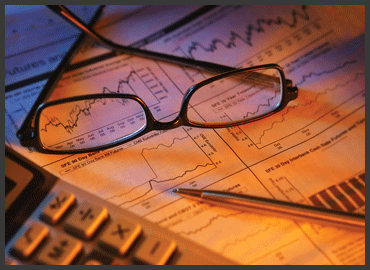 Very confident. Why? For two reasons. Firstly, hopefully we will not need as many provisions as we set aside in 2008. So, all the provisions that we set aside will just come back as profitability and growth, which is one reason why we will post better profitability this year.
Very confident. Why? For two reasons. Firstly, hopefully we will not need as many provisions as we set aside in 2008. So, all the provisions that we set aside will just come back as profitability and growth, which is one reason why we will post better profitability this year.
Secondly, we have realigned our business focus to cope with the realities of the economic market. We have focused on some areas that have been less affected and pulled away from riskier areas, for instance, if you had told me in the past that you’ll give me an AAA rated bank in the US at 25 basis points, I’d have been more than happy to take that for two or three years.
However, now we have seen that some AAA rated banks in the US have defaulted or have had some problems. We are focusing on GCC banks that are AAA rated banks in our standard and that we are confident will continue to fulfill their obligations without too many problems but at risks much higher than a quarter percent. So, I think the ability to generate higher profitability at the same level of exposure is still there and therefore we will be able to improve on the results of 2008.
Despite this great performance in 2008, the Moody’s Investor Service has changed the outlook on the long-term deposit rating for BBK from stable to negative. Is this a cause of concern to you?
Yes and no. Yes, because we would like our rating to remain the same or improved, of course. I am very disappointed that this rating has been changed to a negative outlook. No, because we, as a bank, are not the main cause for this downgrading, nor is our performance; it’s the country’s overall rating. The country’s overall rating was downgraded in this particular segment, and we have to fall within the ceiling of the country. The most important rating though is the long-term rating. Our long-term rating by the two agencies that rate us – Moody’s and Fitch – has remained as is with a stable outlook; it has not changed. What has changed is the financial strength, and that is because of fear from the liquidity aspect, fear that the bank will not be able to generate enough liquidity for the future, and the overall crisis that is affecting the market. It is external factors that have affected the rating of the bank rather than internal factors such as our failure to generate profit, to expand or to continue holding our market share.
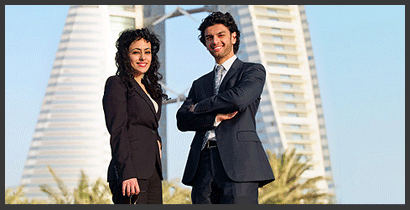
I think this is temporary and a lot of things have stemmed from the lower oil prices. The country’s budget that was once based on $60 per barrel has now been reviewed and has just recently been approved at $40 per barrel.
Today, we are at $50, which means whatever deficit we have in the budget is being covered by the higher oil price. Whenever the oil price is higher, government spending increases, the general feeling in the country becomes more positive and prospects become brighter for the bank. I think if oil prices go up, the ability of the country increases and the rating will hopefully be revised to positive and I think BBK’s rating will also be revised.
The growth of Islamic banking has been remarkable in recent years and is expected to reach $4 trillion in the next five years, however according to Ernst and Young mergers and acquisition activity is expected to pick up in 2009 along with a need to build a scale as the market is dominated by numerous, small, inefficient institutions. What is your assessment of Islamic banking. You recently established Capinnova Investment bank, the shari’ah compliant investment banking arm of BBK. Is this a threat or an opportunity?
We have seen over the past few years that there is a tendency by a certain segment of clients to move into shari’ah compliant business, which is Islamic banking. It is not a small percentage of the population that is moving in that direction and it can’t be ignored.
I think we, as a conventional commercial bank, will be losing customers because those who want to convert to the Islamic way of doing business will not be able to continue dealing with us. If I were an Islamic bank, my customer would have the option of dealing with me or going to a commercial bank. So, Islamic banks are not concerned about losing customers while conventional banks are.
If you say today Islamic banks have X number of customers while conventional banks have Y number of customers: 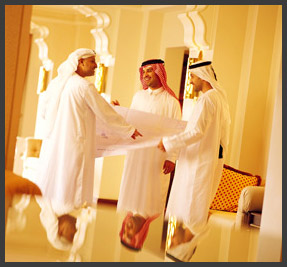 X + Y = the total population. As we go on, X will increase and Y will not be able to increase, except due to the natural growth of the population. So, basically, X can attract from Y while Y cannot attract from X. Therefore, I think the room for expansion for Islamic banking is larger than that for conventional banking although there is room for conventional banks to grow too of course. Also, the nature of business done by Islamic banks – private equity, real estate developments, traditional banking services such a s lending – are all the specialisation of this segment of the banking sector.
X + Y = the total population. As we go on, X will increase and Y will not be able to increase, except due to the natural growth of the population. So, basically, X can attract from Y while Y cannot attract from X. Therefore, I think the room for expansion for Islamic banking is larger than that for conventional banking although there is room for conventional banks to grow too of course. Also, the nature of business done by Islamic banks – private equity, real estate developments, traditional banking services such a s lending – are all the specialisation of this segment of the banking sector.
I think Islamic banking will be able grow as long as they don’t expose themselves to a particular sector of the economy. We, at BBK, have launched Capinnova, which is a wholesale investment bank to take advantage of this market and to be able to share in the development of Islamic investment banking and hopefully be able to capture part of the market share supported by our presence in the market as BBK. We have got a good market share, we have been in the market for a long time and this will definitely – directly or indirectly – help in referring customers to our Islamic arm.
Do you think Capinnova might become the target of an acquisition?
It could become a target of an acquisition but Capinnova is not a public listed institution so any acquisition would have to be done through BBK and BBK will have the final call.
If we get a good offer, we might sell it off. If the offer is not attractive and we think we will be able to make more out of it by continuing with it as a subsidiary we will do so. At the moment, there is no plan to sell it off because it has just started, we want to develop it and make it bigger to help in contributing to the core business of BBK. The basic idea of creating it is to expand our services and attract a wider range of customers.
In addition to 17 domestic branches, you are also present in Kuwait, India and Dubai. Would you be able to comment on your expansion plans for the future; in 2009 and 2010?
We do have several branches in Bahrain, among them is the financial mall that I have already spoken about and I think we have reached the saturation level when it comes to local branches; I don’t think the country can take more than up to 20 branches per bank. There is no single bank in the country that has more than 20 branches. We have got good market share, we are competing with a number of banks in Bahrain so I think increasing the number of branches would be extremely difficult. Therefore, the only way for us is to expand outside Bahrain. We have a major branch in Kuwait, two in India and a representative office in Dubai. In Kuwait, there is room to expand, especially with the opening of the Iraqi market. We will be able to play a larger role there out of our Kuwait branch, and they have not reached the saturation point yet.
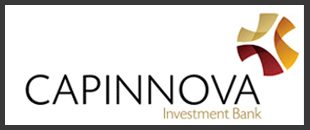
In India, it is difficult to obtain a license for additional branches, but out of our own two branches we can expand business tremendously with enough capital to support this growth. BBK is not a bank that provides only banking services. It is a group of banks that has subsidiaries in other financial-related services, like CrediMax, investment banks like Capinnova, and a very advanced call centre called Invita. With these subsidiaries, we will be able to go into other countries, establish joint ventures and expand in these countries.
The whole group does not only get its profit from banking facilities but from other activities and I think we’ll be able to expand more, aided by the presence of our subsidiary. However, that does not mean that if we, as a bank, were to get the opportunity to expand regionally, we would shy away from it. It is one of our strategic initiatives that has been set for a long time. We are pursuing it very aggressively and wherever there is an opportunity to expand regionally, we will definitely pursue it very positively.
Where else would you like to expand?
Initially, our neighbouring countries in the GCC, and eventually, further abroad in the Middle East region. I think this will be enough for us in the coming few years; once we are strong enough we can consider other markets.
How do you envision BBK in 2015 from the long-term perspective?
 We hope that we will move from our current size to a new level, we want BBK to grow through acquisitions, mergers, expanding business and creating new businesses. We want to be the bank that any local or international client thinks of when he considers any banking service, and that needs lots of hard work, not only through media and advertising, but also through having a real presence in the hearts and minds of people, whether locally or internationally. That can only be achieved by giving unique services so that clients will think of you regardless of where they are. My hope is that we will increase the value and size of BBK to become one of the top banks in terms of size; in terms of balance sheet, capital and profitability.
We hope that we will move from our current size to a new level, we want BBK to grow through acquisitions, mergers, expanding business and creating new businesses. We want to be the bank that any local or international client thinks of when he considers any banking service, and that needs lots of hard work, not only through media and advertising, but also through having a real presence in the hearts and minds of people, whether locally or internationally. That can only be achieved by giving unique services so that clients will think of you regardless of where they are. My hope is that we will increase the value and size of BBK to become one of the top banks in terms of size; in terms of balance sheet, capital and profitability.
Bahrain has tremendous historical and cultural potential. What is your contribution to sponsoring cultural events and historical renovations?
This is an area where we spend a lot of money and it tends to be ignored. We do spend a lot of money supporting cultural and educational projects; helping people in the country.
Year after year we have been appropriating a good percentage of our profits to these causes. We have a list of regular events and activities that we support every year; cultural issues, helping the needy, etc. and we allocate a substantial amount to this. I would say BBK is very well known for its charity work and sponsorship.
We have annual events ranging from sports activities to cultural activities as well as the special events that may come up. Not only do we provide support for social events but we also sponsor conferences, mainly on banking, both locally and internationally. Every year, for the past few years, we have been sponsoring the IMF function in association with the Economic Development Board (EDB) of Bahrain and the Bahrain Association of Banks (BAB). We go to the IMF meetings and we support their main functions representing Bahrain.
What is the image that you would like Bahrain to have abroad?
I’d like Bahrain in the international market to represent stability, safety for investors, and ease of doing business. For several years, Bahrain has been ranked at the top of countries where efficiency of doing business is concerned. We have a very efficient system because there is good coordination between various authorities and governmental departments in the country that makes the process of establishing a business much smoother than in many countries in the world. When the international investor thinks of Bahrain, we don’t want him to think of the small economic aspect because we have got the whole GCC as a market and it’s a very important market in the world.
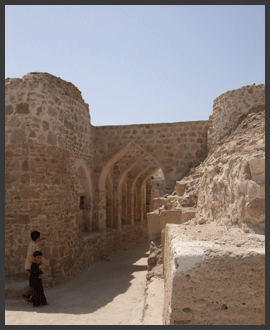
Also, our close location to countries like India, Iran and other South East Asian countries is an added advantage. Human resources availability is a very important element that is found in Bahrain more than in any other GCC country. The people of Bahrain are well educated and well trained. We have recently created Tamkeen, which used to be known as the Labour Fund, which is helping to develop the human capital of Bahrain and is providing more trained people who are able to do various types of work. This will definitely cause any investor to think twice before he ignores Bahrain as a place to start business.